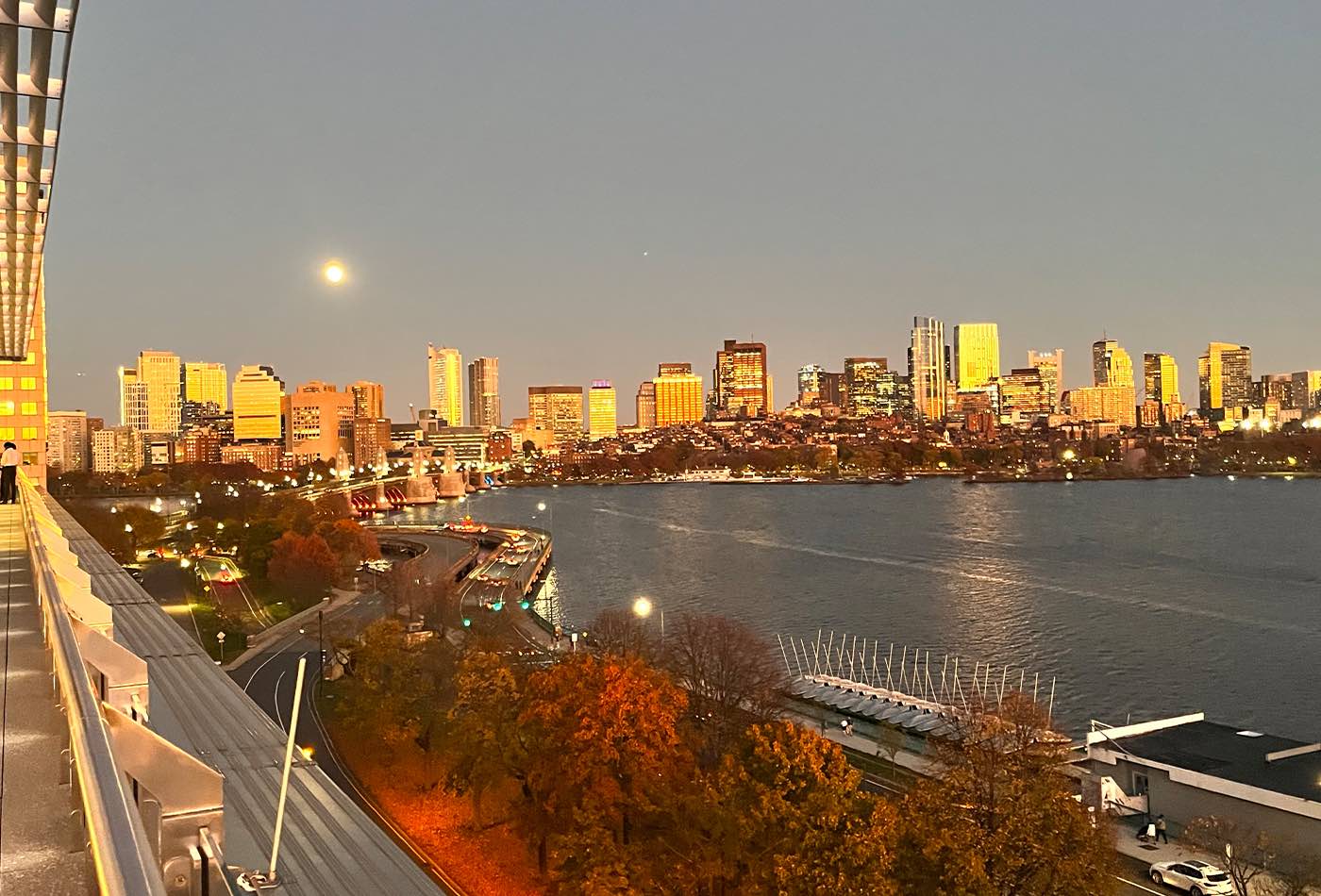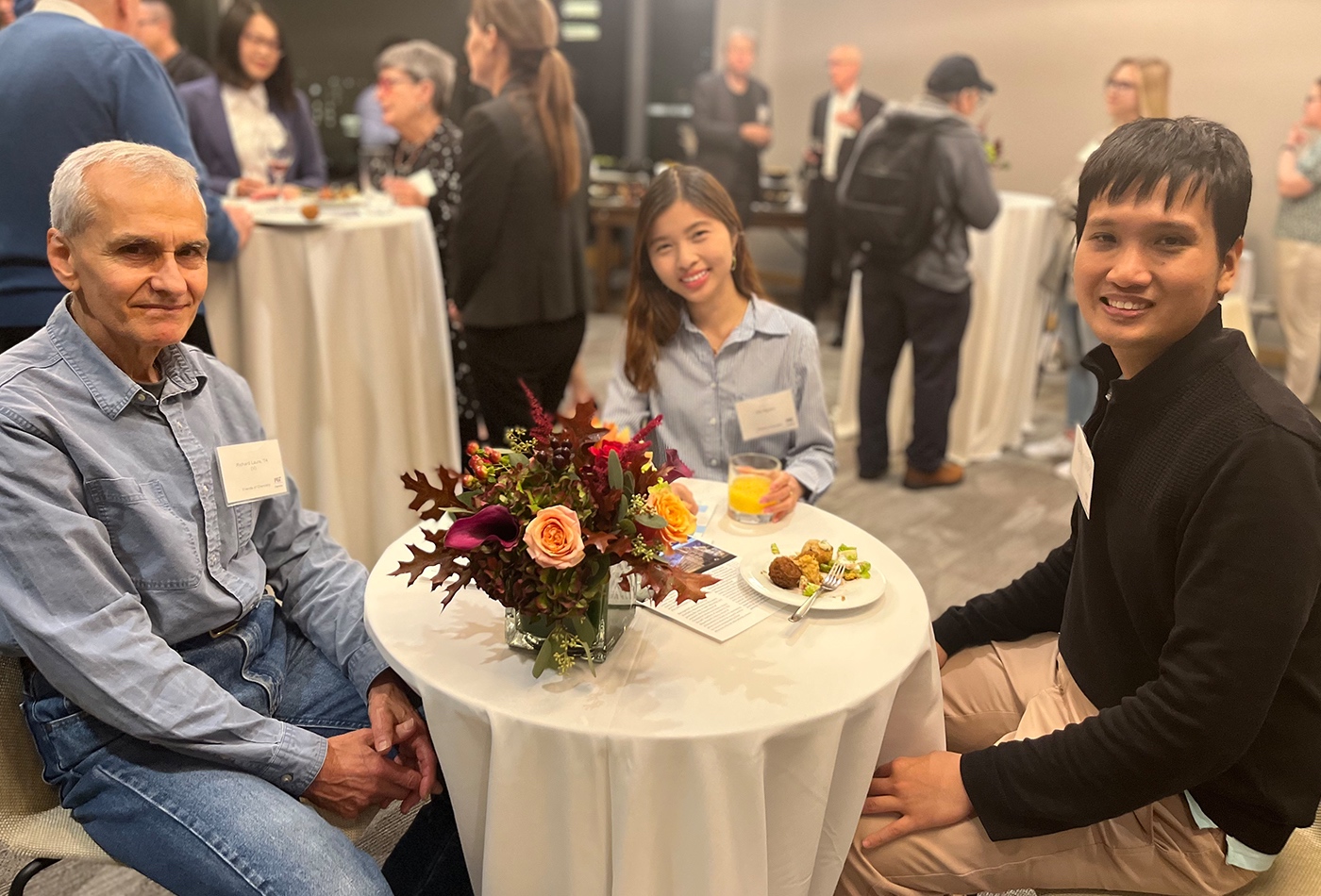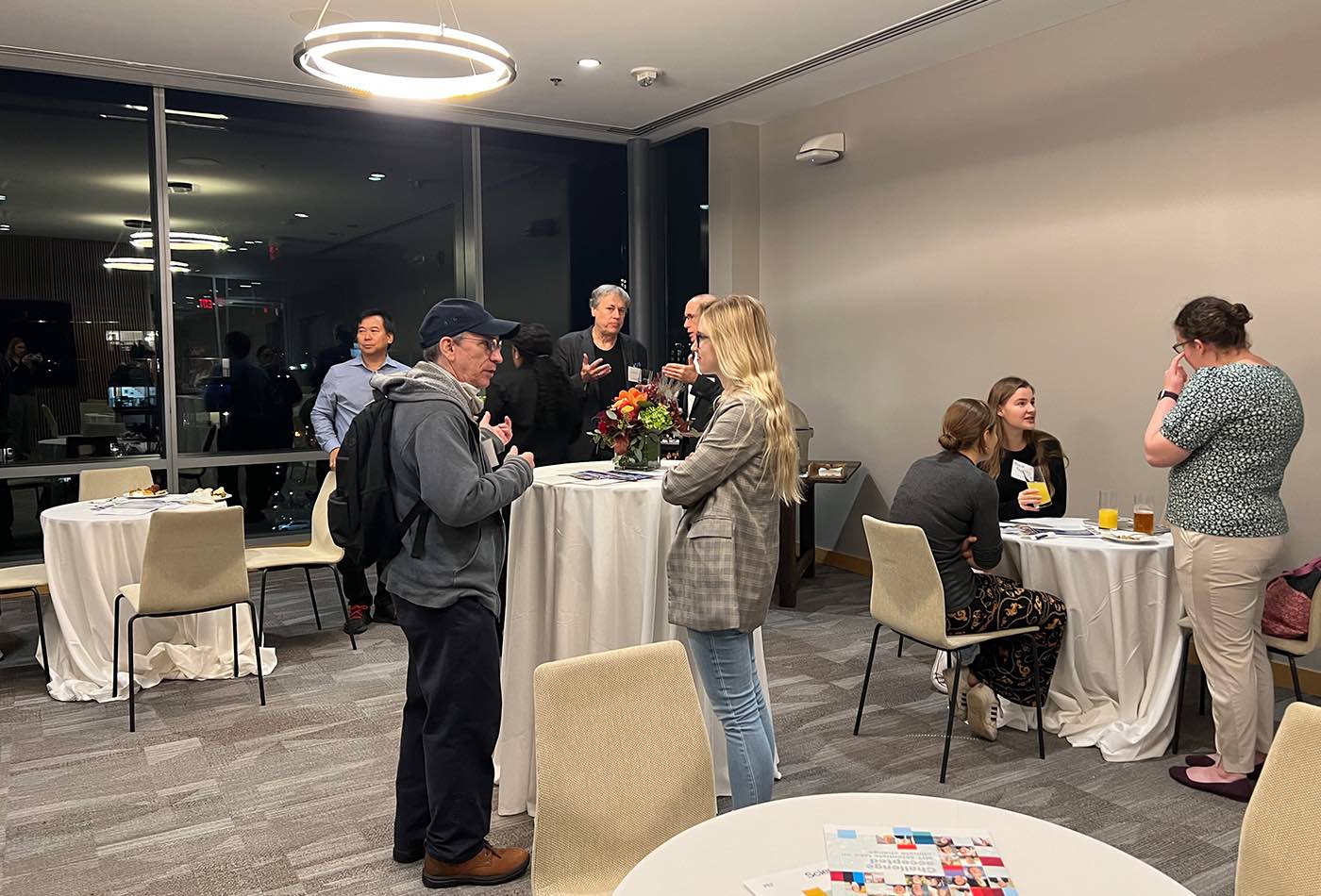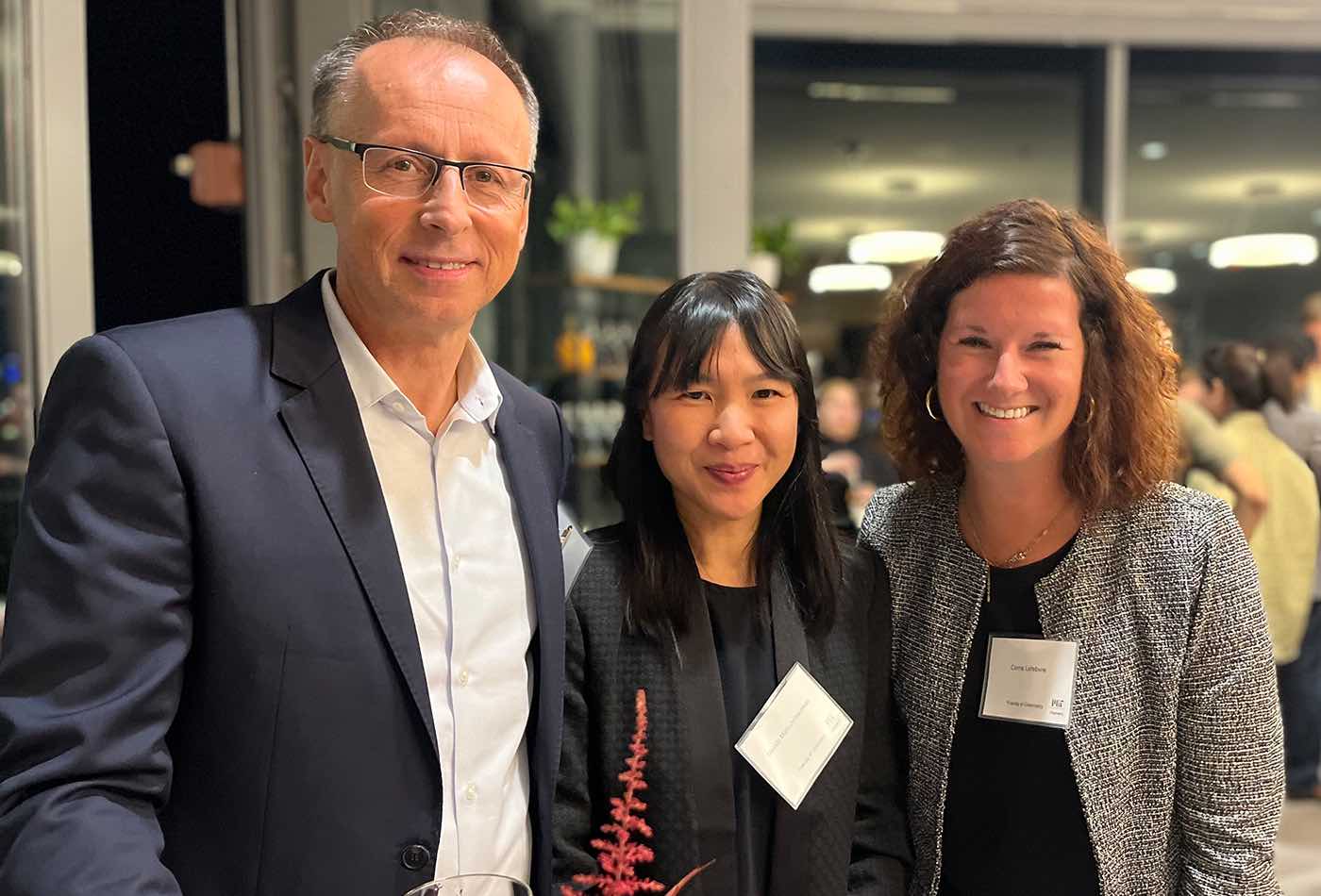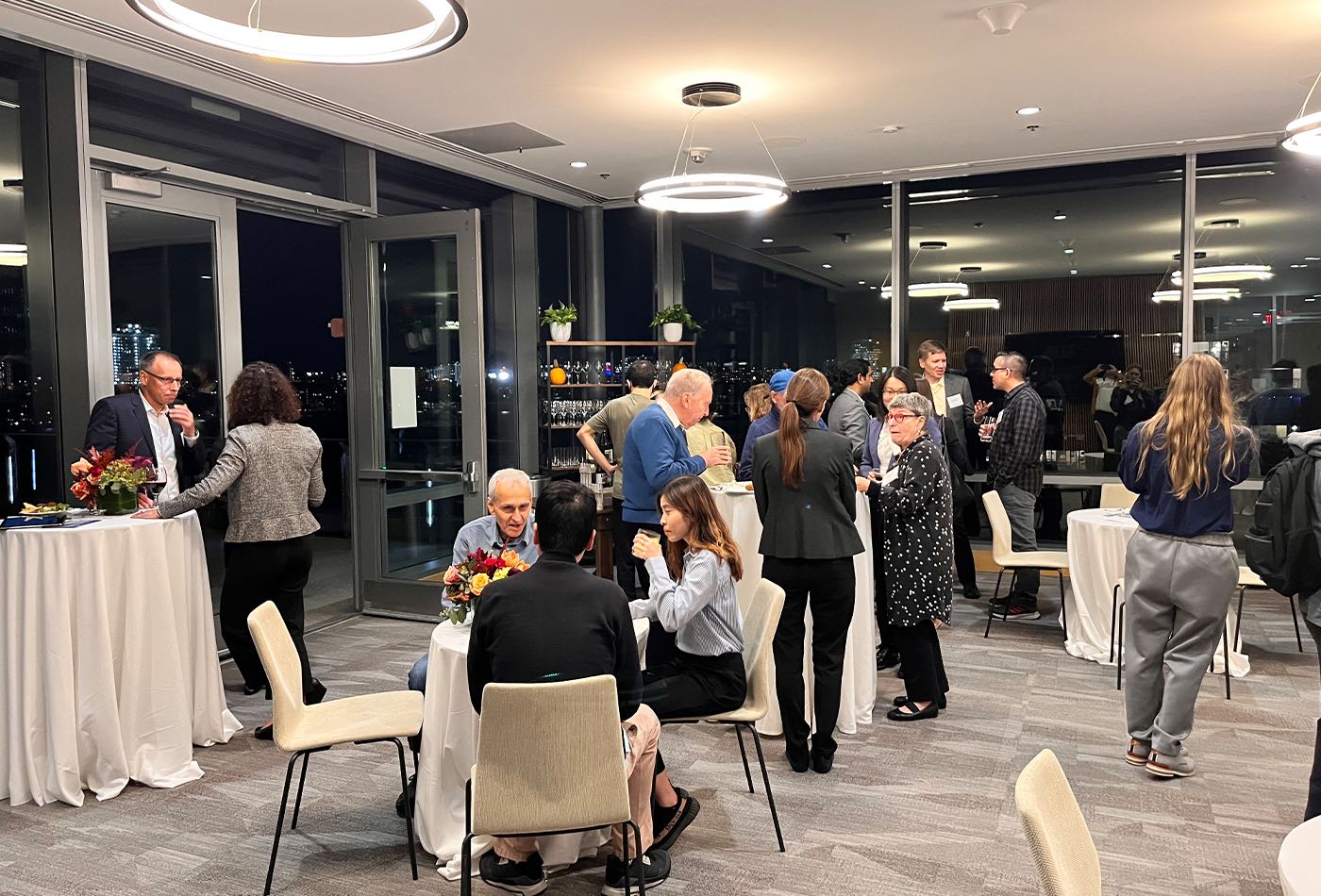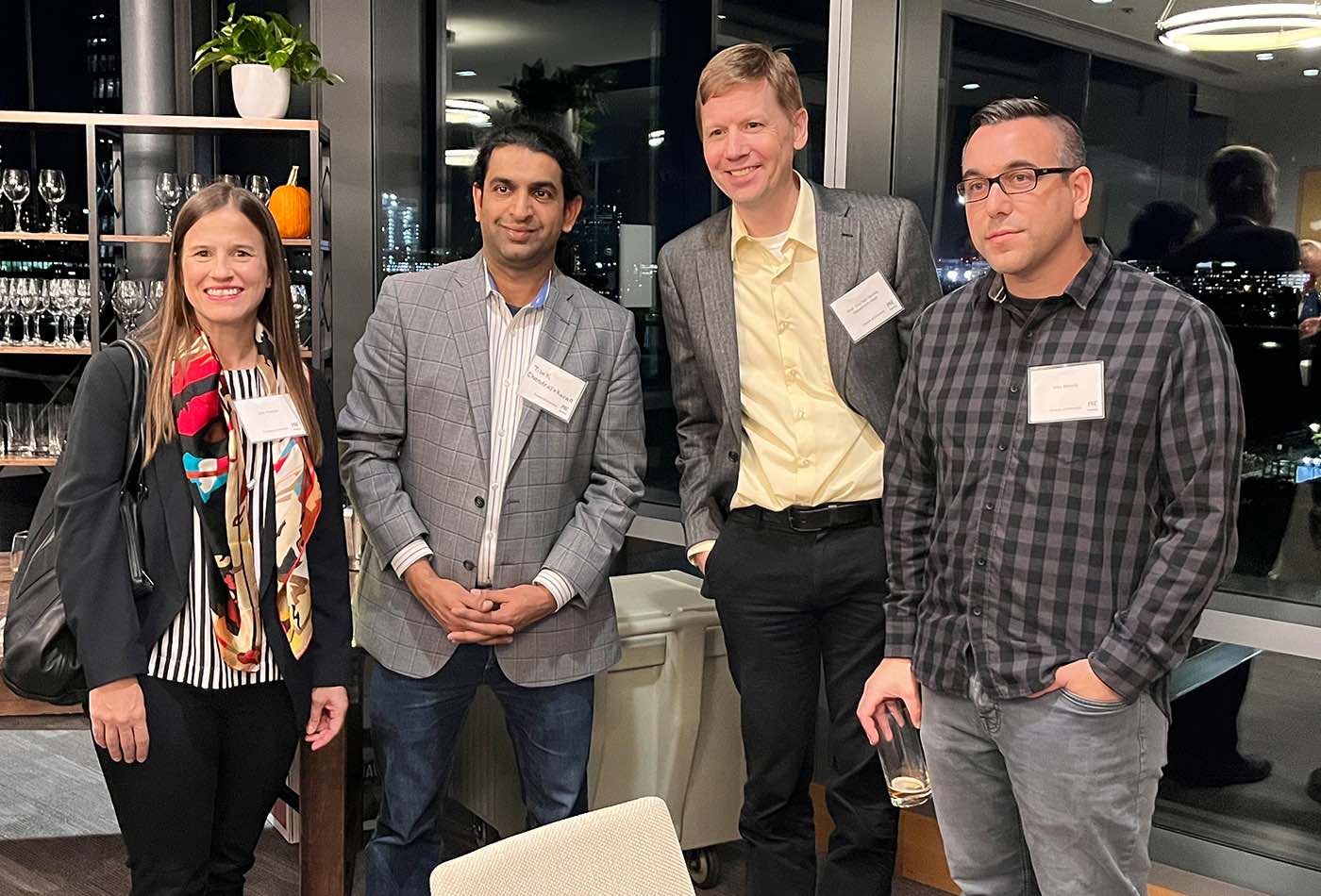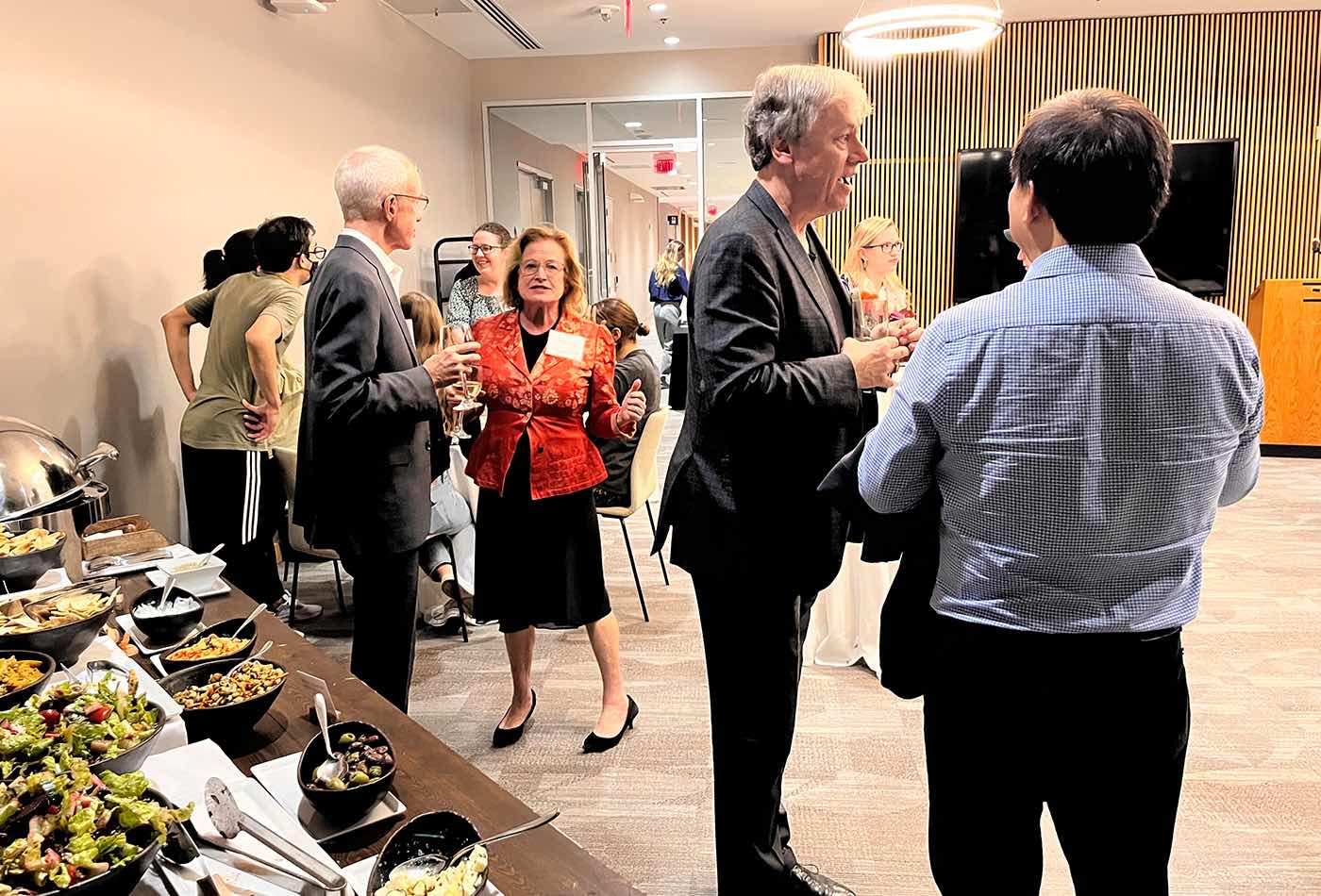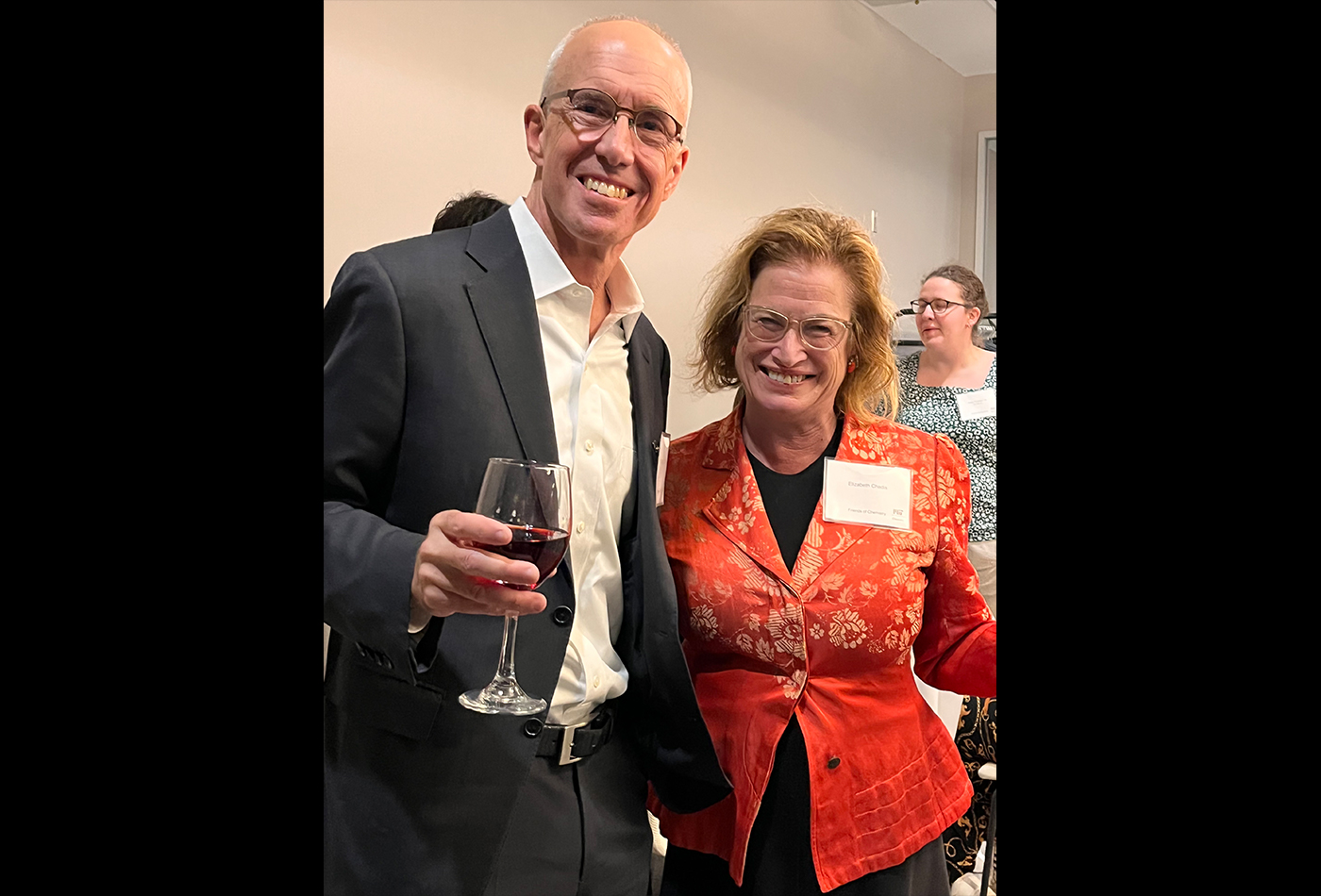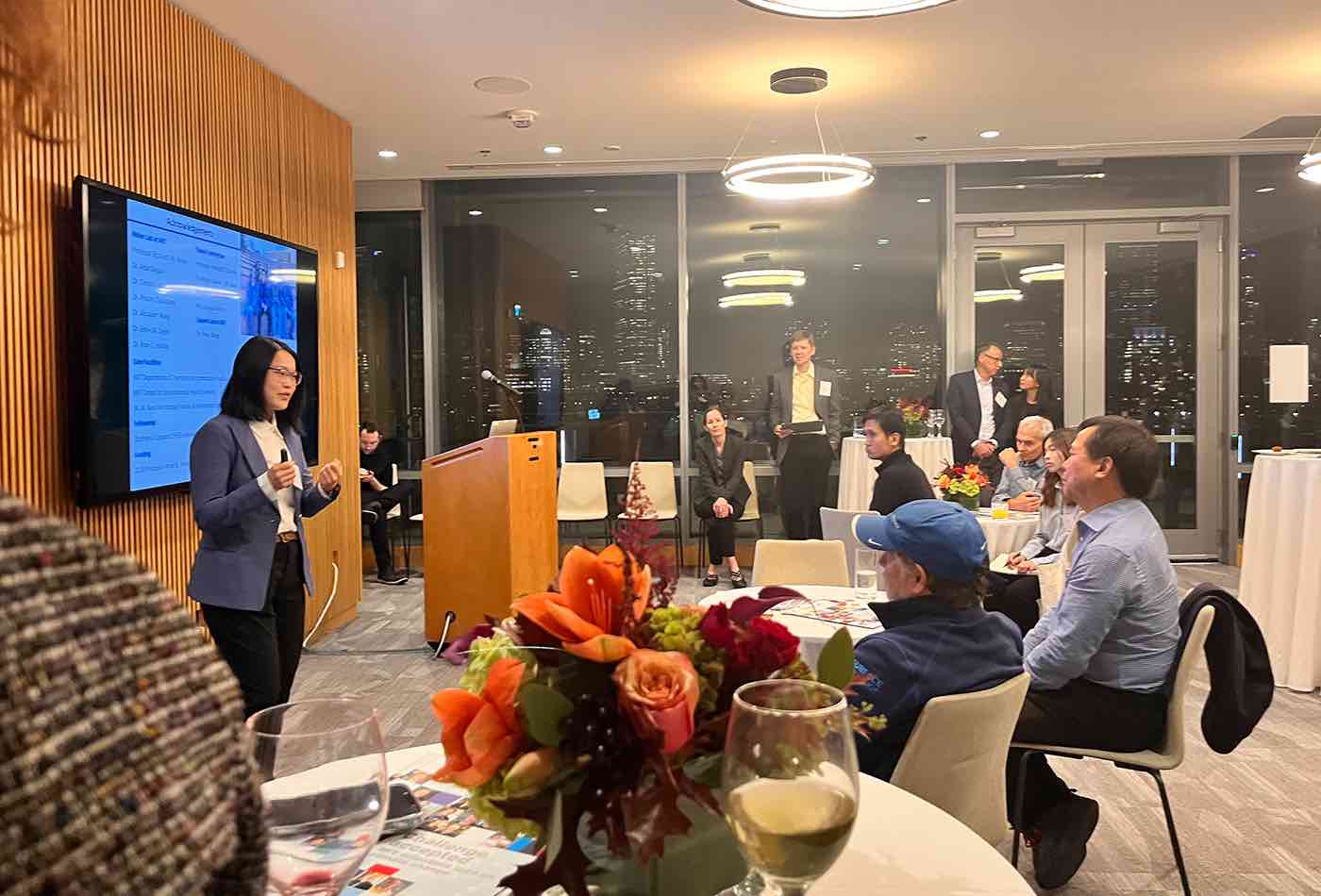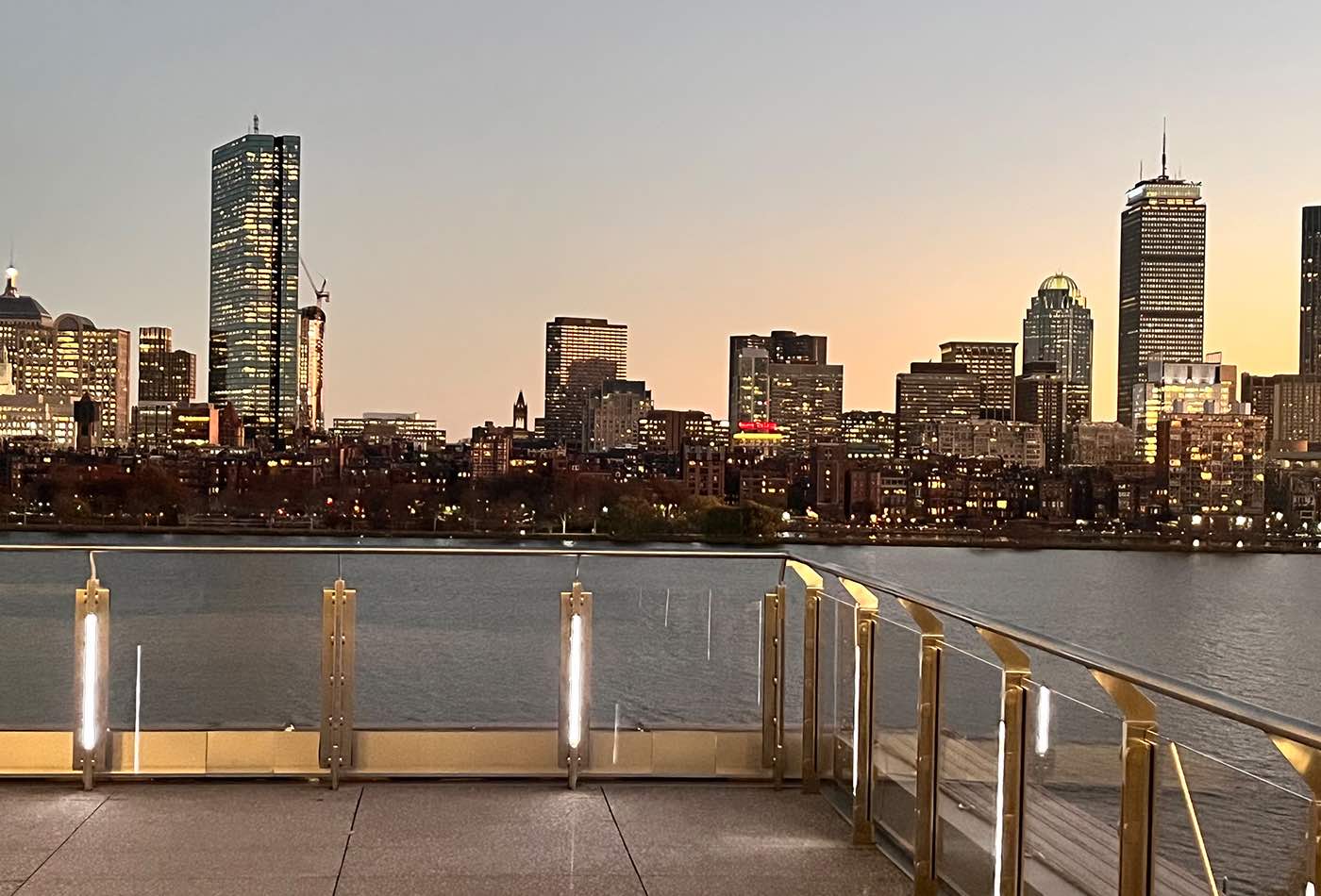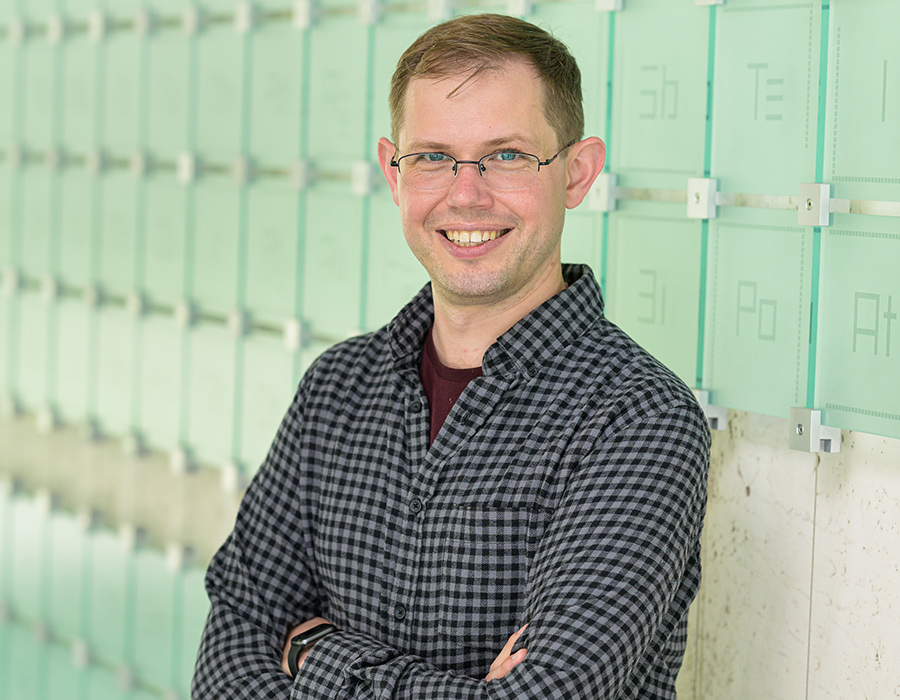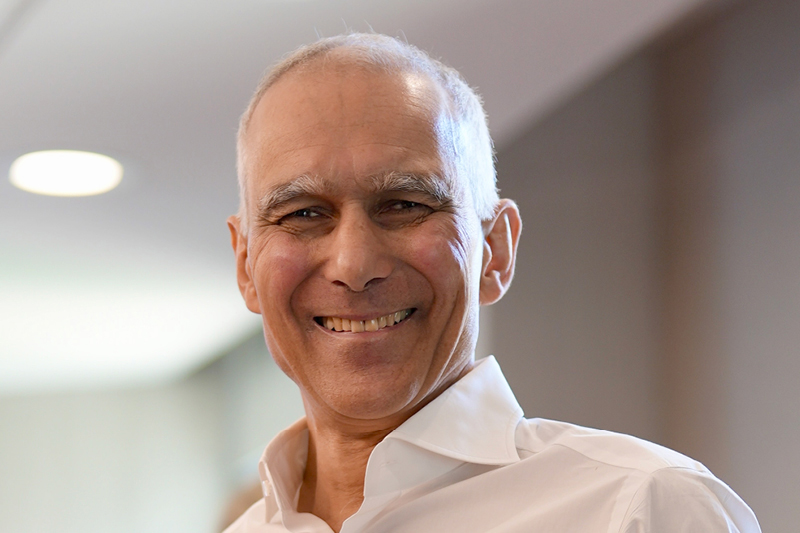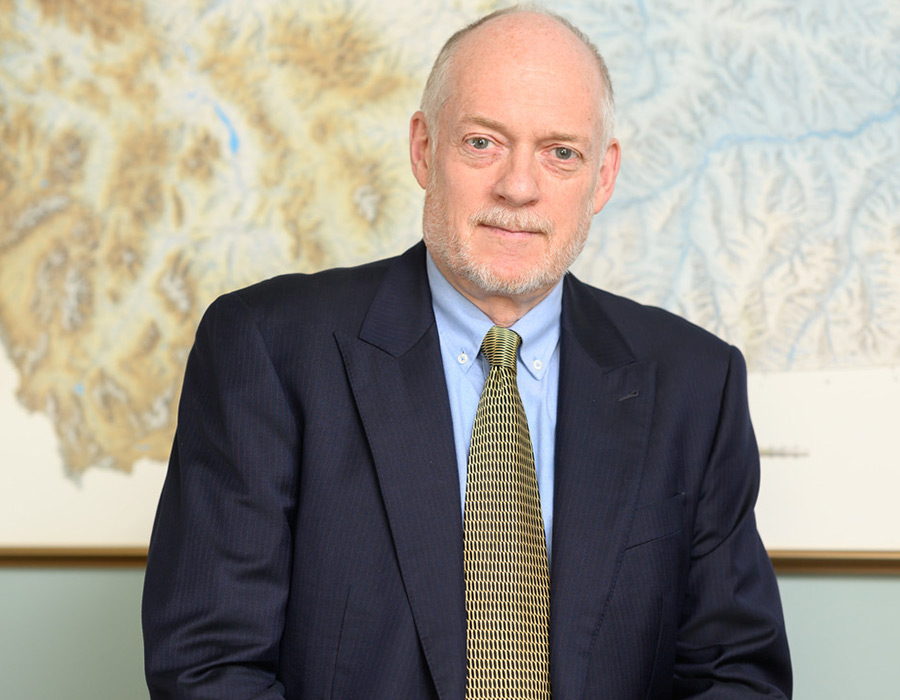Leading Initiatives to Solve Everyday Challenges
Alumni and friends of the Department of Chemistry gathered to enjoy an evening of food, drink, and talks by professors Elizabeth M. Nolan and Ronald T. Raines.
On November 7, 2022, the Department of Chemistry hosted reception featuring food, drinks, and talks by Professors Elizabeth M. Nolan and Ronald T. Raines. Alumni and friends of the department gathered in the Samberg Conference Center, where they were treated to learning more about the department’s latest efforts to play a leading role in providing solutions to some of the most prominent challenges facing the world today.
“I very much see Chemistry as the central science,” said Department Head and Professor Troy Van Voorhis in his opening remarks. “As it stands, Chemistry is involved in a huge number of initiatives across campus – the Climate Grand Challenge which we had a number of faculty recognized; the Broad Institute, the Schwarzman college of computing, and the institute for medical engineering science. And looking forward I see a number of opportunities for Chemistry to play a leadership role in emerging initiatives in the life sciences, climate and sustainability, and materials for quantum computing.”
Scientific Solutions to Societal Problems
The research talks began with Professor Elizabeth M. Nolan, accompanied by graduate student ChuChu Guo. The Nolan Lab’s research program is motivated by the global problems of infectious disease and antibiotic resistance. The lab investigates the chemistry and biology of small molecules, peptides, and proteins that participate in the human innate immune response and host/pathogen interaction, and contribute to microbial pathogenesis. In many projects, they emphasize how transition metals, and metal-ion chelators produced by either the host or microbe, contribute to these phenomena. The Nolan Lab’s experimental approach combines the techniques of inorganic and organic chemistries, biological chemistry, and microbiology.
Professor Ronald T. Raines and Yana Petri, a graduate student in his group, concluded the evening’s talks. Research projects in the Raines laboratory are designed to reveal how biological phenomena can be explained with the principles of chemistry. The hypotheses are far-reaching, and testing them requires the use of techniques and ideas from diverse disciplines. This broad/deep training is appropriate for scientists who want to perform innovative and meaningful research at the widening interface between chemistry and biology.
In presenting their ongoing efforts to alleviate some of the earth’s many challenges, Nolan, Raines, and Van Voorhis all emphasized the importance of philanthropic donations made to support graduate students in the department, as student researchers play a critical role in every group’s research endeavors.
“Our department devotes the bulk of its resources to supporting those students – educating them, providing them fellowships, creating up-to-date laboratory space, and providing new instrumentation,” said Van Voorhis. “In doing so, we continue to attract and retain the best of the best. Graduate students in particular are a valuable, and valued part of our community. We as faculty take great pride in working with them, watching them grow as scholars, and helping them to become successful.”
Philanthropy with Impact
As a department, it is our goal to see that faculty and students have the necessary resources to make discoveries, cultivate therapies for diseases we face, and generate insights that help us to better understand the world we live in. If you are contemplating a gift to MIT, we hope that you’ll consider supporting graduate fellowships in the Chemistry Department.
Please note that all gifts to graduate fellowships from now through December 31 will be matched by the department!

